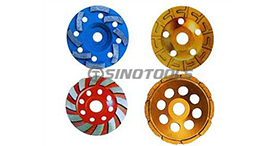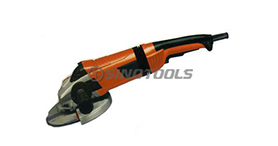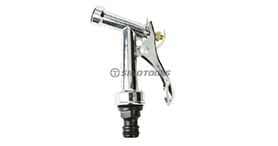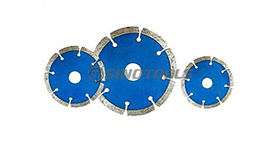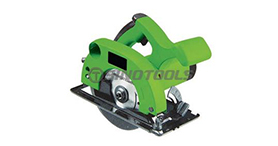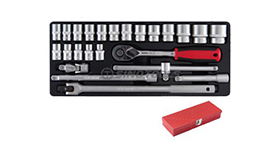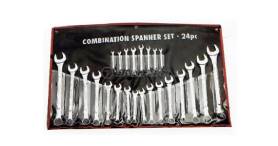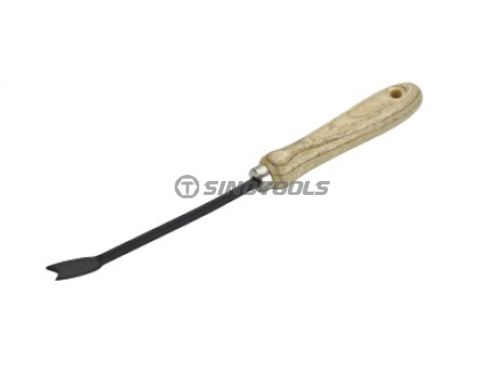Safety glasses are a type of eye defense that is made to protect the user from injuries to the eye because of hazardous problems in the office, home, or other locations such as while playing sporting activities. According to the National Institute for Occupational Security and Health And Wellness (NIOSH), about 2,000 occupational eye injuries calling for clinical treatment are reported in the U.S. every day, most of which might have been avoided or been much less severe had the proper eye protection been worn. Moreover, the Division of Labor reports that eye injuries cause an estimated $300 million annually in shed production time, clinical expenses, and also employees' compensation.
This write-up will explain just how safety glasses are made and will certainly talk about the usual sorts of safety eyewear used as Personal Security Devices (PPE).
Safety Eyewear Market and Applications
The need for security glasses is expanding, From an approximate $505 million dollar market in 2018, the security glasses market in the UNITED STATE is predicted to expand to around $669 million by 2025, a compound annual development rate (CAGR) of 4.1%.
Security eyewear stands for several different types and also styles of safety glasses and also safety glasses, including shatterproof glass and also security goggles. These safety glasses, as well as glasses, are made use of in several applications, consisting of:
Clinical centers such as health centers, treatment centers, and also medical professional's offices
Laboratories and also study facilities
Institutions and universities
Oral offices
Manufacturing plants
Building sites
Sports applications
House projects
Types of Eye Injuries and Hazards
Safety eyewear such as safety glasses supplies protection versus injuries from unexpected direct exposure to unsafe conditions. The nature of the risks to which employees may be revealed will certainly depend upon the market or organization. In commercial settings, such as building job or production, a few of the typical kinds of hazards to which employees may be exposed include:
Exposure to dust, concrete, and steel bits or projectiles
Falling particles such as developing materials or glass
Smoke and also toxic or dangerous gases from chemical fumes
Chemical splashes, such as acids, bases, gas, solvents, lime, as well as damp or completely dry cement powder
Employees in specialized applications, such as welders may find themselves in jeopardy from cutting or welding light, electric arcing from arc welding equipment, and thermal dangers and also fires. Doctors, as well as those workers in biological work in research laboratory setups, may be subjected to bloodborne or air-borne pathogens from blood, spit, body fluids, or handling of human remains from contaminated individuals. The eyes are an entry point for microorganisms or infections that can result in infection just like the mouth or nasal flows usually covered by a mask or respirator.
According to the CDC, the common types of eye injuries that can take place consist of:
Corneal abrasions as well as conjunctivitis (red eyes).
Concrete or steel fragments orbits embedded in the eye.
Chemical splashes or burns.
Welder's flash.
Facial contusions and black eyes.
Transmittable conditions.
Injuries from intense light power such as lasers, ultraviolet light, and also infrared heat energy.
Cuts or slits from projectiles or other debris.
Eye trauma from strikes to the eye.
Safety goggles and also shatterproof glass is designed to help avert these kinds of eye injuries when an appropriate option, fit, and use of these security eyeglasses is followed.
Security Glasses Types and Features
Safety and security safety glasses and shatterproof glass serve similar objectives yet are not the exact same. Safety glasses look like normal glasses put on for vision adjustment but have a lot greater strength and also can survive greater degrees of impact pressures. Typical influence scores include basic influence as well as high influence. To certify as being standard impact glasses or safety glasses, the item needs to pass a drop sphere examination in which a 1" diameter steel ball is gone down onto the lens from a height of 50 inches. The lens should not damage, split, or chip. High effect shatterproof glass or safety glasses have to can enduring the force imparted by a 1/4" steel ball traveling at a rate of 150 feet per 2nd (fps) without the lens splitting, cracking, or cracking.
Safety glasses do not completely safeguard the eye, nevertheless, as there are spaces in between the glasses and the user's face on the top, sides, as well as bottom sides of the glasses. So, it is still feasible for a projectile to affect the eye by traveling through the gap left open with safety glasses. Security goggles resolve the imperfection of safety glasses by supplying full wraparound security for the wearer as well as offering 360-degree security by having a tight gap-free fit against the user's face. Several designs feature a strap instead of structure expansions that rest on the user's ears as are frequently utilized on safety glasses. The strap enables a snug fit to be accomplished as well as precludes the goggles from being displaced or thrown from the user's eyes in the event they are struck by a larger projectile. The limited fit likewise provides much better security against other kinds of threats such as chemicals, blood, grease, oil, or steam. They additionally supply improved defense from sawdust, triggers, or steel shavings that could be present in a commercial center or on a building and construction website.
Security goggles prolong further outwards than safety glasses, as well as many styles enable the wearer to use their prescription glasses under underneath the safety goggles. Other types have prescription lenses behind the safety lenses of the goggles.
The sorts of safety glasses and goggles vary, as well as numerous are specifically made to address particular threats. Typical sorts of safety goggles consist of the following:.
Straight vented goggles-- enable the circulation of air into the goggle through vent openings that are made to block spherical objects of sized ≥ 1.5 mm. This goggle type is suitable for usage where the main danger is impact and also the threats from vapors or chemical sprinkles are non-existent.
Indirectly vented goggles-- allow for use when splash threats are feasible by utilizing a hooded or covered vent that precludes the visibility of a straight-line flow in between the outside as well as inside of the safety glasses.
Non-vented safety glasses-- do not have any kind of vent as well as therefore can offer protection against dust, hazes, liquids, and vapors, consisting of chemical vapors.
Medical Safety Googles-- are used by medical professionals, nurses, medical specialists, as well as various other employees to block fluids as well as aerosols from reaching the eyes. Some types of clinical goggles are nonreusable.
Welders safety glasses-- feature a cupped or wraparound lens that blocks the intensity of light produced from welding procedures. Different filter lenses are utilized depending upon the type of welding or reducing being carried out, the electrode dimension, and also the electric arc present used. Various plate thicknesses provide various levels of minimal safety color, which is a mathematical value that stands for the quantity of glowing light energy that can be transmitted to the individual's eyes. Larger values of minimal safety color stand for a higher quantity of defense, which is less glowing power getting to the eyes.
Laser goggles-- give the user with protection against sent out coherent light energy from lasers. The lenses on these safety glasses are specially covered optical filters that are made to obstruct a particular series of wavelengths or frequencies that correspond to the laser's outcome. There are several filters offered for generally made use of lasers consisting of CO2 lasers, diode lasers, ND-YAG lasers, UV/Argon/KTP Lasers, and also HeNe lasers, to name a few.
X-ray security safety glasses-- stop high-energy electromagnetic waves from getting to the eyes.
Ultraviolet (UV) goggles-- function covered lenses that obstruct non-visible light in the ultraviolet region of the electromagnetic spectrum from reaching the eyes.
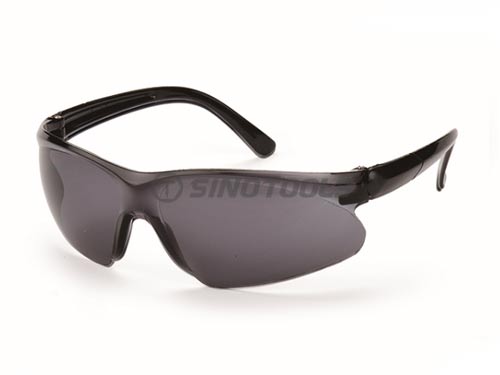
Safety Goggles
Safety glasses as well as safety glasses are usually created utilizing a shot molding procedure that infuses a polymer material right into a steel mold and mildew that has actually been fabricated to duplicate the desired form of the lenses as well as frameworks. The precise steps used to make goggles and also shatterproof glass will rely on the particular type of item being made, but the steps laid out below offer a basic summary of exactly how these forms of eye defense are created.
Basic Process Steps
Mold and mildew production-- a steel mold and mildew is produced that will develop the shape of the lens and also frame for the goggles or glasses. A single mold and mildew may be made use of for both components, or in some cases, a different molding process is utilized for the frame as well as the lenses. The mold and mildew for the lens contain an extremely mirrored surface, designed to generate a lens of high optical clarity.
Injection molding-- a polymer product called polycarbonate is typically made use of for the creation of the safety glasses or glasses. Polycarbonate is a polycarbonate polymer that shows good optical clarity and has two times the impact strength of the majority of other comparable plastic materials, making it an evident selection for safety and security eyeglasses.
Polycarbonate pellets are fed right into a shot molding device that warms the material to a temperature of > 260oC, where it is liquid as well as injected right into the mold under pressure for a period of 30-60 seconds. After injection, the product cools down quickly as well as is then gotten rid of from the mold. Depending upon the mold style, several sets of safety glasses or glasses might be made with a single injection of products. As soon as removed from the mold and mildew, the private safety glasses are examined prior to continuing to the following action to capture any type of malfunctioning systems prior to they are passed down with the process.
Surface area therapy-- completed goggles or glasses are mounted on a support framework and also transferred to a cleaning bathroom to remove any contaminations that could be on the item. A rinse in clear water is executed and after that, the goggles or glasses are put in a chemical bath that applies finishing to the surface area which is made to prevent damaging as well as fogging/misting of the lens. After the finishing has been used, the goggles or glasses are after that put in a treating stove at a temperature level of 120oC for a period of at least 30 minutes or longer relying on the finishing used.
Evaluation as well as last manufacturing-- following the surface therapy, the safety glasses or glasses are inspected for any kind of imperfections or distortions in the lenses. A final set of manufacturing steps entail milling away of a remaining item of polycarbonate product that was left on the product to provide a way for inspectors and also manufacturing employees to deal with the product without the requirement to touch the lenses. A soft silicone nose item is attached to the item. For safety glasses, ear stems are mounted that will certainly help protect the glasses on the wearer's ears. For safety goggles, bands are mounted to protect the goggles around the head. For aired vent safety glasses that have valves, those shutoffs would be set up now as well.
Packaging --- finished glasses and also goggles are extracted from the setting up steps to a packaging line, where they are placed into their final product packaging, then boxed and prepped for storage or delivery.
Impact testing.
In parallel with the total manufacturing process, examples of safety glasses and also glasses are frequently drawn from production runs and also made use of sent to examine fixtures where they undergo numerous influence tests to verify that the item meets the needed influence defenses. Various other examinations such as validation of the residential or commercial properties of anti-scratch and also anti-fogging finishes might also be performed making use of samples.
Refine variations.
Depending on the type of goggles being generated, some variants to the procedure explained over may occur. While most safety goggles and also glasses are made to be optically clear, others, such as those meant for in welding procedures or in lab settings around lasers, need the enhancement of unique surface area treatments to create dark lenses that minimize the passage of light with the lens. Added covering bathrooms and curing actions are required to apply these finishings for those types of goggles or glasses.
Summary
This post offered a recap of just how safety glasses and also other safety and security eye defense products are made, along with an evaluation of the types of eye risks and injuries that can take place. We are China Hand Equipment Manufacturing, If you have any need for our products, please do not hesitate to get us.
